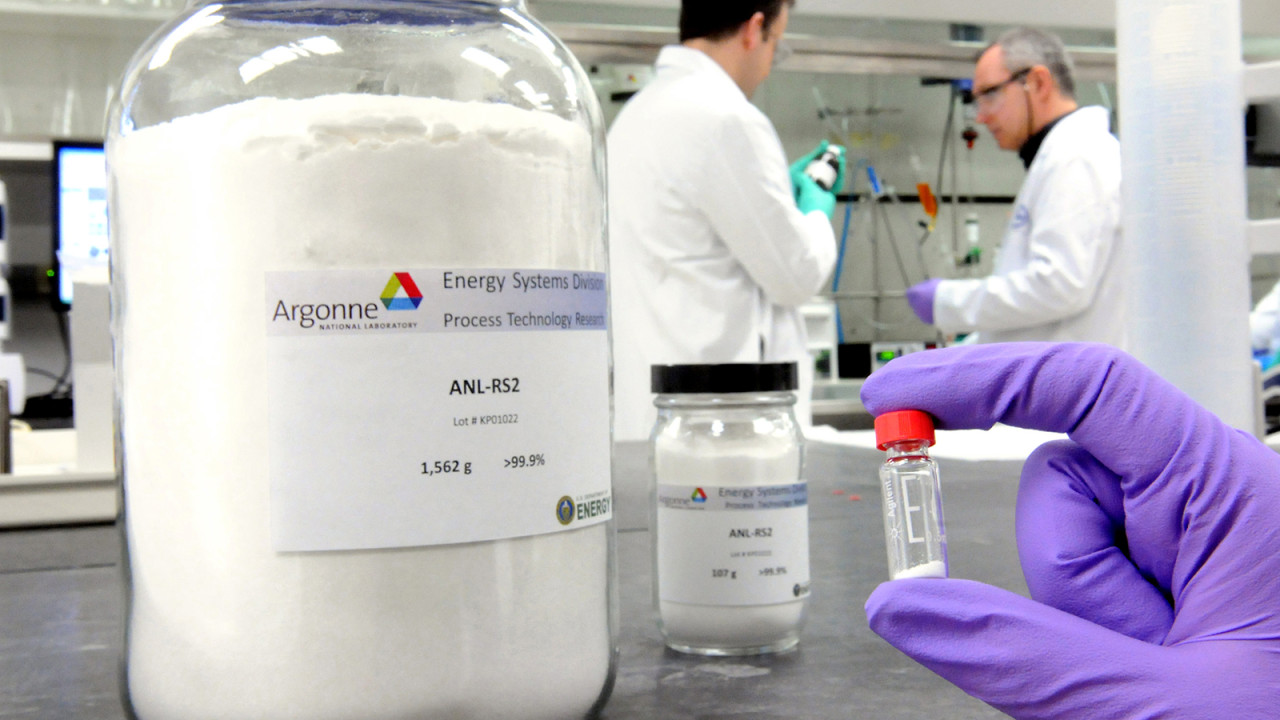US DoE $125 million for next-gen Batteries and Energy Storage research
To support Energy Innovation Hub projects that emphasize multi-disciplinary fundamental research to address long-standing and emerging challenges for rechargeable batteries, the U.S. Department of Energy (DOE) has awarded $125 million over four years for basic research on rechargeable batteries.
The funding is aimed at providing foundational knowledge needed to transform and decarbonize the country's energy system through the development and adoption of cost-effective and clean energy sources.
The ability to sustainably store electricity for future use is central to many modern technologies, from consumer electronics to electric vehicles. Currently, batteries such as lithium-ion and lead acid dominate the landscape, but they have technical limitations.
The department says it requires "transformational technologies founded on new fundamental knowledge and capabilities developed through basic scientific research" to address national, economic, and environmental security challenges.
The Energy Innovation Hub projects supported by this funding opportunity will accelerate discovery and scientific exploration of new battery chemistries, materials, and architectures for transformational energy storage technologies to be deployed in transportation and on the nation's electricity grid, DoE adds.
"The Biden-Harris administration has set aggressive decarbonization goals to address the climate crisis. Electricity plays a central role in virtually all possible pathways to decarbonization of our economy and renewable sources of electricity are already transforming the way we generate and use energy," said Asmeret Asefaw Berhe, DOE's Director of the Office of Science.
RELATED: US awards $2.8 billion towards battery manufacturing for EVs, energy storage
"But we need ways to better store the clean energy captured from solar and wind resources. The scientific discoveries and innovation from the Energy Innovation Hub program, in close coordination with DOE's applied technology programs, will play a key role in ensuring that the US plays a leading role in transforming the way we store and use electricity", he added.
DoE claims that the FOA will support new awards in the batteries and energy storage Energy Innovation Hub program to advance fundamental knowledge for the next generation of rechargeable batteries and related electrochemical energy storage beyond today's commercialized batteries.
Proposed efforts should assemble large teams to conduct coordinated, collaborative, synergistic, and highly interdisciplinary fundamental research to tackle scientific challenges for the next generation of batteries.
Further, proposed research should also address the highest scientific priorities in this area, build on advances and accomplishments in the published literature, and represent a world-leading scientific program when compared to relevant international research efforts.
To strengthen the commitment to promoting a diversity of investigators and institutions supported by the DOE Office of Science, applications are explicitly encouraged that are led by or involve Minority Serving Institutions (MSIs), including Historically Black Colleges and Universities (HBCUs), according to the department's press statement.
RELATED: DoE invests in harvesting cost-efficient lithium from geothermal brines
Applications are open to all accredited U.S. colleges and universities, national laboratories, nonprofits, and private sector companies.




















